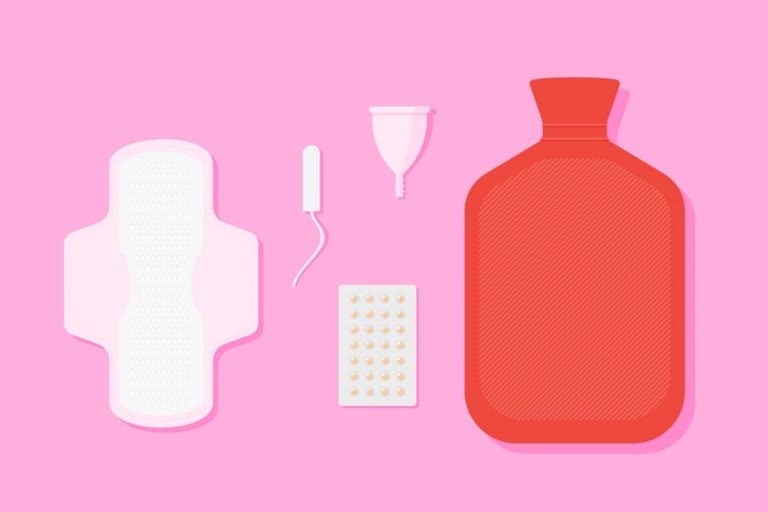While it's commonly suggested that a predictable 28-day cycle with five days of bleeding is normal, this is only an average. For most menstruators, it's not their reality. Indeed, menstrual bleeding length, heaviness and cycle length are all naturally variable, differing between people and even in the same person over time. According to the International Federation of Gynaecology and Obstetrics, a variation in cycle length of up to eight days is normal.
The menstrual cycle is controlled by a mixture of hormones regulated by the hypothalamus and pituitary gland in the brain together with the ovaries what are collectively known as the HPG axis. Disruptions to the body can interrupt the axis releasing hormones, which can impact different aspects of the menstrual cycle, such as length and symptoms. For example, heavy exercise or extreme dieting can result in missing periods, though this is reversible once food intake increases or exercise is reduced. We, therefore, need to take care when assessing self-reported changes to menstrual cycles other influences could be at play.
Nevertheless, something's been going on, and the stress of the pandemic could be a factor. Stress is known to suppress the HPG axis, and past studies have found associations between stress and menstrual irregularity or bleeding length. We know that mental health in the UK deteriorated during the first lockdown, with stress and depression rising. And in an online survey, 46 percent of people said they had seen a change to their menstrual cycle during the pandemic, such as to the severity of premenstrual symptoms or cycle length. Stress is a plausible if unconfirmed cause.
That said, other pandemic changes could be influential too. Weight gain and increased alcohol consumption, which many people also reported during the pandemic, are known to contribute to changes in cycles as well.
What about vaccines?
Shortly after COVID vaccines became available, reports began to appear of them impacting menstrual cycles, particularly that they affected cycle length, making them both shorter and longer. Unfortunately, questions about menstruation have been excluded from much of the COVID vaccine research, including their trials, so there isn't much research on how many people have experienced menstrual changes.
That said, a small number of studies have investigated this. A US study of 4,000 people found that receiving the first vaccine dose had no impact on the timing of the next menstrual bleed. But after receiving the second, people experienced a small delay of just under half a day on average. This difference had disappeared by the third cycle post-vaccine.
Also Read:Implantation Bleeding or Periods How To Recognize
Interestingly, those who received two doses in one cycle had an increased cycle length of two days, which returned to normal by cycle three post-vaccine. It's difficult, though, to untangle the effects of the vaccine from the impact of living through the stressful pandemic. In a Norwegian study of over 5,500 people, 41 percent of participants reported menstrual disturbances after receiving their second vaccine. But crucially, 38 percent reported disturbances before ever receiving any vaccine, the most common symptom being a heavier than usual period.
